(Adopted on:14 May 1971)
Part I Preliminary
Cap 201 Long title
To make further and better provision for the prevention of bribery and for purposes necessary thereto or connected therewith.
Cap 201 s 1 Short title
This Ordinance may be cited as the Prevention of Bribery Ordinance.
Cap 201 s 2 Interpretations
(1) In this Ordinance, unless the context otherwise requires-
“Advantage” means-
(a) any gift, loan, fee, reward or commission consisting of money or of any valuable security or of other property or interest in property of any description;
(b) any office, employment or contract;
(c) any payment, release, discharge or liquidation of any loan, obligation or other liability, whether in whole or in part;
(d) any other service, or favor (other than entertainment), including protection from any penalty or disability incurred or apprehended or from any action or proceedings of a disciplinary, civil or criminal nature, whether or not already instituted;
(e) the exercise or forbearance from the exercise of any right or any power or duty; and
(f) any offer, undertaking or promise, whether conditional or unconditional, of any advantage within the meaning of any of the preceding paragraphs (a), (b), (c), (d) and (e),but does not include an election donation within the meaning of the Elections (Corrupt and Illegal Conduct) Ordinance (Cap 554), particulars of which are included in an election return in accordance with that Ordinance; (Amended 33 of 1991 s. 2; 10 of 2000 s. 47)
“agent” includes a public servant and any person employed by or acting for another;
“banker’s books” means-
(a) any ledger, ledger card, statement of account, day book, cash book, account book or other book or document whatsoever;
(b) any cherub, voucher, record card, report, letter or other document whatsoever; and
(c) any copy of anything referred to in paragraph (a) or (b), used in the ordinary business of a bank; (Replaced 28 of 1980 s. 2)
“child” includes a child who is illegitimate or adopted, a foster child and a step-child;
“Commissioner” means the Commissioner of the Independent Commission Against Corruption appointed in accordance with the Basic Law and includes the Deputy Commissioner appointed under section 6 of the Independent Commission Against Corruption Ordinance (Cap 204) and the person appointed to act as the Commissioner of the Independent Commission Against Corruption under section 7(2) of that Ordinance; (Replaced 1 of 2003 s. 3)
“company books” means the annual return and balance sheets and any ledger, day book, cash book, account book, bank book, report, letter or other book or document used in the ordinary business of a company; (Amended 28 of 1980 s. 2)
“court” includes a magistrate hearing proceedings with a view to committal for trial under section 85 of the Magistrates Ordinance (Cap 227);
“document” includes any register, book, record, tape-recording, any form of computer input or output, and any other material (whether produced mechanically, electrically, or manually or by any other means whatsoever); (Added 28 of 1980 s. 2)
“entertainment” means the provision of food or drink, for consumption on the occasion when it is provided, and of any other entertainment connected with, or provided at the same time as, such provisions;
“investigating officer” means any person authorized by the Commissioner to exercise the powers of an investigating officer under this Ordinance; (Added 9 of 1974 s. 2)
“parents” includes parents-in-law and step-parents;
“prescribed officer” means-
(a) Any person holding an office of emolument, whether permanent or temporary, under the Government; and
(b) the following persons (to the extent that they are not persons included in paragraph (a))-
(I) any principal official of the Government appointed in accordance with the Basic Law;
(ii) the Monetary Authority appointed under section 5A of the Exchange Fund Ordinance (Cap 66) and any person appointed under section 5A(3) of that Ordinance;
(iii) Chairman of the Public Service Commission;
(iv) any member of the staff of the Independent Commission Against Corruption;
(v) any judicial officer holding a judicial office specified in Schedule 1 to the Judicial Officers Recommendation Commission Ordinance (Cap 92) and any judicial officer appointed by the Chief Justice, and any member of the staff of the Judiciary; (Added 14 of 2003 s. 13)
“Principal” includes-
(a) an employer;
(b) a beneficiary under a trust;
(c) a trust estate as though it were a person;
(d) any person beneficially interested in the estate of a deceased person;
(e) the estate of a deceased person as though it were a person; and
(f) in the case of an employee of a public body, the public body;
“Public body” means-
(a) the Government;
(b) the Executive Council;
(c) the Legislative Council;
(d) (Repealed 78 of 1999 s. 7)
(ad) any District Council; (Added 42 of 1981 s. 27. Amended 8 of 1999 s. 89)
(db) (Repealed 78 of 1999 s. 7)
(e) any board, commission, committee or other body, whether paid or unpaid, appointed by or on behalf of the Chief Executive or the Chief Executive in Council; and (Amended 1 of 2003 s. 3)
(f) any board, commission, committee or other body specified in Schedule 1; (Amended 20 of 1999 s. 2)
“Public servant” means any prescribed officer and also any employee of a public body and- (Amended 48 of 1996 s. 2; 14 of 2003 s. 13)
(a) In the case of a public body other than a body referred to in paragraph (a), (b) or (c) of this definition, any member of the public body; (Amended 20 of 1999 s. 2)
(a) in the case of a public body specified in Schedule 2-
(I) an office holder of the public body (other than an honorary office holder);
(ii) any member of any council, board, committee or other body of the public body which is vested with any responsibility for the conduct or management of the affairs of the public body; (Added 20 of 1999 s. 2)
(b) In the case of a public body which is a club or association, any member of the public body who-
(I) is an office holder of the body (other than an honorary office holder); or
(ii) is vested with any responsibility for the conduct or management of its affairs;
(c) in the case of a public body which is an educational institution established or continued in being by an Ordinance, any officer of the institution and, subject to subsection (3), any member of any council, board, committee or other body of the institution, which is itself a public body, or which-
(I) is established by or under the Ordinance relating to the institution;
(ii) is vested with any responsibility for the conduct or management of the affairs of the institution (not being affairs of a purely social, recreational or cultural nature); and
(iii) is not excluded under subsection (3),whether the employee, officer or member is temporary or permanent and whether paid or unpaid, but-
(A) the holding of a share by a person in a company which is a public body; or
(B) the entitlement of a person to vote at meetings of a club or association which is a public body, shall not of itself constitute that person a public servant; (Replaced 50 of 1987 s. 2)
“Spouse” includes a concubine.
(Amended 14 of 2003 s. 13)
(2) For the purposes of this Ordinance-
(a) a person offers an advantage if he, or any other person acting on his behalf, directly or indirectly gives, affords or holds out, or agrees, undertakes or promises to give, afford or hold out, any advantage to or for the benefit of or in trust for any other person;
(b) a person solicits an advantage if he, or any other person acting on his behalf, directly or indirectly demands, invites, asks for or indicates willingness to receive, any advantage, whether for himself or for any other person; and
(c) a person accepts an advantage if he, or any other person acting on his behalf, directly or indirectly takes, receives or obtains, or agrees to take, receive or obtain any advantage, whether for himself or for any other person.
(3) The Chief Executive may by notice in the Gazette- (Amended 1 of 2003 s. 3)
(a) exclude, for the purposes of the definition of “public servant” in subsection (1), any council, board, committee or other body of any educational institution specified in the notice;
(b) exclude from the definition of “public servant” any member of any council, board, committee or other body of any educational institution, who would otherwise by virtue of his membership thereof fall within that definition. (Added 50 of 1987 s. 2)
Part II Offences
Cap 201 s 3 Soliciting or accepting an advantage
Any prescribed officer who, without the general or special permission of the Chief Executive, solicits or accepts any advantage shall be guilty of an offence.
Cap 201 s 4 Bribery
(1) Any person who, whether in Hong Kong or elsewhere, without lawful authority or reasonable excuse, offers any advantage to a public servant as an inducement to or reward for or otherwise on account of that public servant’s- (Amended 28 of 1980 s. 3)
(a) performing or abstaining from performing, or having performed or abstained from performing, any act in his capacity as a public servant;
(b) expediting, delaying, hindering or preventing, or having expedited, delayed, hindered or prevented, the performance of an act, whether by that public servant or by any other public servant in his or that other public servant’s capacity as a public servant; or
(c) assisting, favoring, hindering or delaying, or having assisted, favored, hindered or delayed, any person in the transaction of any business with a public body, shall be guilty of an offence.
(2) Any public servant who, whether in Hong Kong or elsewhere, without lawful authority or reasonable excuse, solicits or accepts any advantage as an inducement to or reward for or otherwise on account of his- (Amended 28 of 1980 s. 3)
(a) performing or abstaining from performing, or having performed or abstained from performing, any act in his capacity as a public servant;
(b) expediting, delaying, hindering or preventing, or having expedited, delayed, hindered or prevented, the performance of an act, whether by himself or by any other public servant in his or that other public servant’s capacity as a public servant; or
(c) assisting, favoring, hindering or delaying, or having assisted, favored, hindered or delayed, any person in the transaction of any business with a public body,
Shall be guilty of an offence.
(3) If a public servant other than a prescribed officer solicits or accepts an advantage with the permission of the public body of which he is an employee being permission which complies with subsection (4), neither he nor the person who offered the advantage shall be guilty of an offence under this section. (Added 28 of 1980 s. 3. Amended 14 of 2003 s. 15)
(4) for the purposes of subsection (3) permission shall be in writing and-
(a) be given before the advantage is offered, solicited or accepted; or
(b) in any case where an advantage has been offered or accepted without prior permission, be applied for and given as soon as reasonably possible after such offer or acceptance, and for such permission to be effective for the purposes of subsection (3), the public body shall, before giving such permission, have regard to the circumstances in which it is sought. (Added 28 of 1980 s. 3)
Cap 201 s 5 Bribery for giving assistance, etc. in regard to contracts
(1) Any person who, without lawful authority or reasonable excuse, offers an advantage to a public servant as an inducement to or reward for or otherwise on account of such public servant’s giving assistance or using influence in, or having given assistance or used influence in-
(a) The promotion, execution, or procuring of-
(I) any contract with a public body for the performance of any work, the providing of any service, the doing of any thing or the supplying of any article, material or substance, or
(ii) any subcontract to perform any work, provide any service, do any thing or supply any article, material or substance required to be performed, provided, done or supplied under any contract with a public body; or
(b) The payment of the price, consideration or other moneys stipulated or otherwise provided for in any such contract or subcontract as aforesaid, shall be guilty of an offence.
(2) Any public servant who, without lawful authority or reasonable excuse, solicits or accepts any advantage as an inducement to or reward for or otherwise on account of his giving assistance or using influence in, or having given assistance or used influence in-
(a) The promotion, execution or procuring of, or
(b) the payment of the price, consideration or other moneys stipulated or otherwise provided for in, any such contract or subcontract as is referred to in subsection (1) shall be guilty of an offence.
Cap 201 s 6 Bribery for procuring withdrawal of tenders
(1) Any person who, without lawful authority or reasonable excuse, offers any advantage to any other person as an inducement to or a reward for or otherwise on account of the withdrawal of a tender, or the refraining from the making of a tender, for any contract with a public body for the performance of any work, the providing of any service, the doing of any thing or the supplying of any article, material or substance, shall be guilty of an offence.
(2) Any person who, without lawful authority or reasonable excuse, solicits or accepts any advantage as an inducement to or a reward for or otherwise on account of the withdrawal of a tender, or the refraining from the making of a tender, for such a contract as is referred to in subsection (1), shall be guilty of an offence.
Cap 201 s 7 Bribery in relation to auctions
(1) Any person who, without lawful authority or reasonable excuse, offers any advantage to any other person as an inducement to or reward for or otherwise on account of that other person’s refraining or having refrained from bidding at any auction conducted by or on behalf of any public body, shall be guilty of an offence.
(2) Any person who, without lawful authority or reasonable excuse, solicits or accepts any advantage as an inducement to or reward for or otherwise on account of his refraining or having refrained from bidding at any auction conducted by or on behalf of any public body, shall be guilty of an offence.
Cap 201 s 8 Bribery of public servants by persons having dealings with public bodies
(1) Any person who, without lawful authority or reasonable excuse, while having dealings of any kind with the Government through any department, office or establishment of the Government, offers any advantage to any prescribed officer employed in that department, office or establishment of the Government, shall be guilty of an offence. (Amended 14 of 2003 s. 16)
(2) Any person who, without lawful authority or reasonable excuse, while having dealings of any kind with any other public body, offers any advantage to any public servant employed by that public body, shall be guilty of an offence.
Cap 201 s 9 corrupt transactions with agents
(1) Any agent who, without lawful authority or reasonable excuse, solicits or accepts any advantage as an inducement to or reward for or otherwise on account of his-
(a) doing or forbearing to do, or having done or forborne to do, any act in relation to his principal’s affairs or business; or
(b) showing or forbearing to show, or having shown or forborne to show, favor or disfavor to any person in relation to his principal’s affairs or business, shall be guilty of an offence.
(2) Any person who, without lawful authority or reasonable excuse, offers any advantage to any agent as an inducement to or reward for or otherwise on account of the agent’s-
(a) doing or forbearing to do, or having done or forborne to do, any act in relation to his principal’s affairs or business; or
(b) showing or forbearing to show, or having shown or forborne to show, favor or disfavor to any person in relation to his principal’s affairs or business, shall be guilty of an offence.
(3) Any agent who, with intent to deceive his principal, uses any receipt, account or other document-
(a) In respect of which the principal is interested; and
(b) which contains any statement which is false or erroneous or defective in any material particular; and
(c) which to his knowledge is intended to mislead the principal, shall be guilty of an offence.
(4) If an agent solicits or accepts an advantage with the permission of his principal, being permission which complies with subsection (5), neither he nor the person who offered the advantage shall be guilty of an offence under subsection (1) or (2). (Replaced 28 of 1980 s. 4)
(5) For the purposes of subsection (4) permission shall-
(a) be given before the advantage is offered, solicited or accepted; or
(b) in any case where an advantage has been offered or accepted without prior permission, be applied for and given as soon as reasonably possible after such offer or acceptance, and for such permission to be effective for the purposes of subsection (4), the principal shall, before giving such permission, have regard to the circumstances in which it is sought. (Added 28 of 1980 s. 4)
Cap 201 s 10 Possession of unexplained property
(1) Any person who, being or having been a prescribed officer- (Amended 14 of 2003 s. 17)
(a) maintains a standard of living above that which is commensurate with his present or past official emoluments; or
(b) is in control of pecuniary resources or property disproportionate to his present or past official emoluments,
Shall, unless he gives a satisfactory explanation to the court as to how he was able to maintain such a standard of living or how such pecuniary resources or property came under his control, be guilty of an offence.
(2) Where a court is satisfied in proceedings for an offence under subsection (1)(b) that, having regard to the closeness of his relationship to the accused and to other circumstances, there is reason to believe that any person was holding pecuniary resources or property in trust for or otherwise on behalf of the accused or acquired such resources or property as a gift from the accused, such resources or property shall, in the absence of evidence to the contrary, be presumed to have been in the control of the accused. (Added 9 of 1974 s. 3. Amended 48 of 1996 s. 3)
(3)-(4) (Repealed 56 of 1973 s. 2)
(5) in this section, “official emoluments” includes a pension or gratuity payable under the Pensions Ordinance (Cap 89), the Pension Benefits Ordinance (Cap 99) or the Pension Benefits (Judicial Officers) Ordinance (Cap 401). (Amended 36 of 1987 s. 44; 85 of 1988 s. 51)
Cap 201 s 11 Giver and acceptor of bribe to be guilty notwithstanding that purpose not carried out, etc.
(1) If, in any proceedings for an offence under any section in this Part, it is proved that the accused accepted any advantage, believing or suspecting or having grounds to believe or suspect that the advantage was given as an inducement to or reward for or otherwise on account of his doing or forbearing to do, or having done or forborne to do, any act referred to in that section, it shall be no defense that-
(a) He did not actually have the power, right or opportunity so to do or forbear;
(b) he accepted the advantage without intending so to do or forbear; or
(c) he did not in fact so do or forbear.
(2) If, in any proceedings for an offence under any section in this Part, it is proved that the accused offered any advantage to any other person as an inducement to or reward for or otherwise on account of that other person’s doing or forbearing to do, or having done or forborne to do, any act referred to in that section, believing or suspecting or having reason to believe or suspect that such other person had the power, right or opportunity so to do or forbear, it shall be no defense that such other person had no such power, right or opportunity.
Cap 201 s 12 Penalty for offences
Remarks:
Adaptation amendments retroactively made – see 25 of 1998 s. 2; 1 of 2003 s. 3
(1) Any person guilty of an offence under this Part, other than an offence under section 3, shall be liable-
(a) On conviction on indictment-
(I) for an offence under section 10, to a fine of $1000000 and to imprisonment for 10 years;
(ii) for an offence under section 5 or 6, to a fine of $500000 and to imprisonment for 10 years; and
(iii) for any other offence under this Part, to a fine of $500000 and to imprisonment for 7 years; and (Replaced 50 of 1987 s. 3)
(b) On summary conviction-
(I) for an offence under section 10, to a fine of $500000 and to imprisonment for 3 years; and
(ii) for any other offence under this Part, to a fine of $100000 and to imprisonment for 3 years, (Replaced 50 of 1987 s. 3) and shall be ordered to pay to such person or public body and in such manner as the court directs, the amount or value of any advantage received by him, or such part thereof as the court may specify. (Amended 28 of 1980 s. 5)
(2) Any person guilty of an offence under section 3 shall be liable on conviction to a fine of $100000 and to imprisonment for 1 year, and shall be ordered to pay to the Government in such manner as the court directs the amount or value of the advantage received by him or such part thereof as the court may specify. (Amended 9 of 1974 s. 4; 28 of 1980 s. 5; 1 of 2003 s. 3)
(3) In addition to any penalty imposed under subsection (1), the court may order a person convicted of an offence under section 10(1) (b) to pay to the Government- (Amended 1 of 2003 s. 3)
(a) A sum not exceeding the amount of the pecuniary resources; or
(b) a sum not exceeding the value of the property, the acquisition of which by him was not explained to the satisfaction of the court. (Added 9 of 1974 s. 4)
(4) An order under subsection (3) may be enforced in the same manner as a judgment of the High Court in its civil jurisdiction. (Added 9 of 1974 s. 4. Amended 25 of 1998 s. 2)
(5) An order may be made under subsection (3) in respect of an offence under section 10(1)(b) where the facts that gave rise to that offence arose before 15 February 1974. (Added 61 of 1980 s. 2)
Cap 201 s 12A Conspiracy
(1) Any person convicted of conspiracy to commit an offence under this Part shall be dealt with and punished in like manner as if convicted of such offence and any rules of evidence which apply with respect to the proof of any such offence shall apply in like manner to the proof of conspiracy to commit such offence.
(2) The powers of investigation conferred by Part III of this Ordinance shall apply with respect to a conspiracy to commit an offence under this Ordinance in like manner as they apply to the investigation of any such offence.
(Added 28 of 1980 s. 6)
Cap 201 s 12AA Confiscation of assets
Remarks:
Adaptation amendments retroactively made – see 1 of 2003 s. 3
(1) Subject to this section, where a person is convicted on indictment of an offence under section 10(1) (b) the court may, in addition to any penalty imposed under section 12(1), order the confiscation of any pecuniary resources or property-
(a) Found at the trial to be in his control as provided in section 10; and
(b) of an amount or value not exceeding the amount or value of pecuniary resources or property the acquisition of which by him was not explained to the satisfaction of the court.
(2) Any application for an order under subsection (1) shall be made by the Secretary for Justice within 28 days after the date of the conviction. (Amended L.N. 362 of 1997)
(3) An order under subsection (1) shall not be made in respect of pecuniary resources or property held by a person other than the person convicted unless that other person has been given reasonable notice that such an order may be made and has had an opportunity to show cause why it should not be made.
(4) An order under subsection (1) shall not be made in respect of pecuniary resources or property held by a person other than the person convicted if that other person satisfies the court in any proceedings to show cause under subsection (3) that he had-
(a) Acted in good faith as regards the circumstances in which the pecuniary resources or property came to be held by him; and
(b) so acted in relation to the pecuniary resources or property that an order in the circumstances would be unjust.
(5) Nothing in subsection (4) shall be construed as limiting the court’s discretion to decline to make an order under subsection (1) on grounds other than those specified in subsection (4).
(6) An order under subsection (1)-
(a) may be made subject to such conditions as the court thinks fit in all the circumstances of the case; and
(b) may be made in respect of an offence under section 10(1) (b) where the facts that gave rise to that offence occurred before the date of commencement of the Prevention of Bribery (Amendment) Ordinance 1987 (50 of 1987).
(7) A court may make orders under both subsection (1) and section 12(3) in respect of the same offence but shall not make orders under both provisions in respect of the same pecuniary resources or property.
(8) An order under subsection (1) may make provision for taking possession of pecuniary resources or property to which the order applies and for the disposal of such resources or property by or on behalf of the Government. (Amended 1 of 2003 s. 3)
Cap 201 s 12AB Appeal against confiscation order
(1) Subject to this section, where an order is made under section 12AA in respect of pecuniary resources or property held by a person other than the person convicted, that other person may, within 28 days after the date of making the order, appeal against the order to the Court of Appeal.
(2) On an appeal under this section the Court of Appeal may-
(a) Confirm the order, with or without modification; or
(b) quash the order and make such other order (if any) under section 12AA as it thinks appropriate.
(3) Proceedings under this section shall not operate as a stay of execution of an order unless the court which makes the order or the Court of Appeal otherwise orders and any stay of execution may be subject to such conditions as to costs, the giving of security or otherwise as the court or the Court of Appeal thinks fit.
(4) Subject to this section, an appeal shall be brought in such manner and shall be subject to such conditions as are prescribed by rules made under subsection (5).
(5) The Criminal Procedure Rules Committee constituted under section 9 of the Criminal Procedure Ordinance (Cap 221) may make rules of procedure for the purposes of this section. (Amended 13 of 1995 s. 28)
(6) Nothing in this section shall prejudice or affect the right of a convicted person to appeal against his sentence under Part IV of the Criminal Procedure Ordinance (Cap 221).
Cap 201 s 12AC Costs in proceedings on confiscation order
Remarks:
Amendments retroactively made – see 25 of 1998 s. 2
(1) the court or the Court of Appeal, as the case may be, may, if it thinks fit, award to any person his reasonable costs in respect of any proceedings before it in relation to-
(a) The making of an order under section 12AA; or
(b) an appeal under section 12AB,
Where such an order is not made or is quashed.
(2) Any costs awarded under subsection (1)-
Shall, except where the amount is fixed by the court or the Court of Appeal, be ascertained by the Registrar of the High Court; and (Amended 25 of 1998 s. 2)
(b) shall be paid from general revenue.
Part III Powers of Investigation
Cap 201 s 13 Special powers of investigation
Remarks:
Amendments retroactively made – see 25 of 1998 s. 2
(1) Where the Commissioner is satisfied that there is reasonable cause to believe-
(a) that an offence under this Ordinance may have been committed by any person; and
(b) that any share account, purchase account, club account, subscription account, investment account, trust account, mutual or trust fund account, expense account, bank account or other account of whatsoever kind or description, and any banker’s books, company books, documents or other article of or relating to any person named or otherwise identified in writing by the Commissioner are likely to be relevant for the purposes of an investigation of such offence, he may for those purposes authorize in writing any investigating officer on production by him of the authorization if so required-
(I) to investigate and inspect such accounts, books or documents or other article of or relating to the person named or otherwise identified by the Commissioner;
(ii) to require from any person the production of such accounts, books, documents, or other article of or relating to the person named or otherwise identified by the Commissioner which may be required for the purposes of such investigation and the disclosure of all or any information relating thereto, and to take copies of such accounts, books or documents or of any relevant entry therein and photographs of any other article.
(Replaced 48 of 1996 s. 4)
(1A) The Commissioner shall not, without the leave of the Court of First Instance obtained on ex prate application in chambers, issue an authorization under or by virtue of which any particular person who is alleged or suspected to have committed an offence under this Ordinance can be required to comply with any requirement of the description mentioned in subsection (1) (I) and (ii). (Added 48 of 1996 s. 4)
(1B) The Court of First Instance shall not grant leave for the issue of an authorization under subsection (1)(I) and (ii) unless, on consideration of an application under subsection (1A), it is satisfied as to the matters that the Commissioner is required to be satisfied under subsection (1). (Added 48 of 1996 s. 4)
(2) (A) Every authorization given under subsection (1) shall be deemed also to authorize the investigating officer to require from any person information as to whether or not at any bank, company or other place there is any account, book, document or other article liable to investigation, inspection or production under such authorization. (Amended 9 of 1974 s. 5; 50 of 1987 s. 5; 48 of 1996 s. 4)
(b) A requirement under paragraph (a) shall be made in writing and any statement therein as to the existence of the appropriate authorization under subsection (1) shall be accepted as true without further proof of the fact.
(3) Any person who, having been lawfully required under this section to disclose any information or to produce any accounts, books, documents or other article to an investigating officer authorized under subsection (1), shall, notwithstanding the provisions of other Ordinance or rule of law to the contrary save only the provisions of section 4 of the Inland Revenue Ordinance (Cap 112), comply with such requirement, and any such person who fails or neglects, without reasonable excuse, so to do, and any person who obstructs any such investigating officer in the execution of the authorization given under subsection (1), shall be guilty of an offence and shall be liable on conviction to a fine of $20000 and to imprisonment for 1 year. (Amended 9 of 1974 s. 5; L.N. 374 of 1991; 48 of 1996 s. 4)
(4) Any person who falsely represents that an appropriate authorization has been given under subsection (1) shall be guilty of an offence and shall be liable on conviction to a fine of $20000 and to imprisonment for 1 year.
Cap 201 s 13A Order to make material available and to render assistance
Remarks:
Amendments retroactively made – see 25 of 1998 s. 2
(1) The Commissioner or an investigating officer with the approval of the Commissioner or the Deputy Commissioner may, for the purpose of an investigation into, or proceedings relating to, an offence suspected to have been committed under this Ordinance, make an ex prate application to the Court o



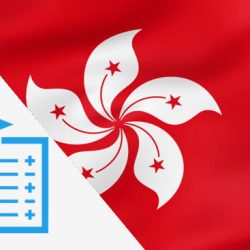
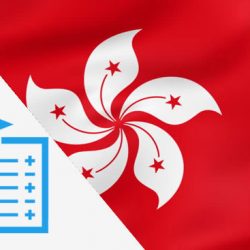

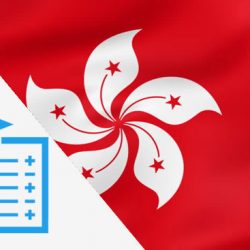
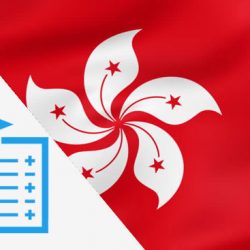
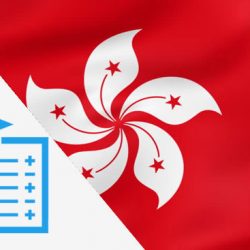
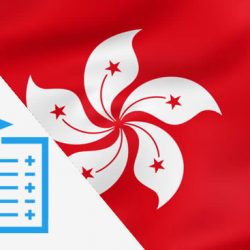
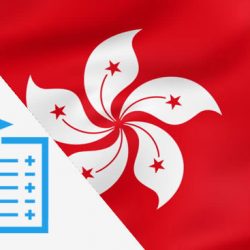
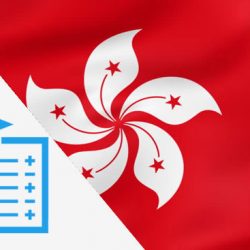
 We will not leak your personal information
We will not leak your personal information